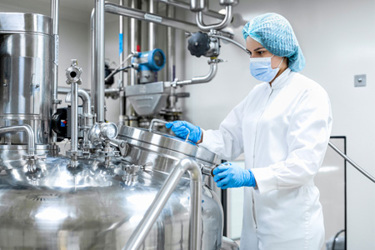When Clean Is The Key To Precision
Brett Saddoris, Technical Marketing Manager, Accumold

Injection molding is often associated with industrial shop floors, yet the rise of micro-scale components has pushed the process into cleanrooms—environments designed to control contamination at levels traditional manufacturing cannot match. Cleanroom micro molding has become indispensable in sectors like medical devices, optics, microfluidics, and wearable technology, where components are measured in microns and even a single dust particle can disrupt function or compromise safety.
More than a hygienic space, a cleanroom is a precision ecosystem. Strict controls over airborne particulates, surface cleanliness, electrostatic discharge, and operator handling ensure molded parts meet stringent reliability and regulatory requirements. Classifications such as ISO Class 7 and Class 8 define graded levels of cleanliness, but the true differentiator lies in process discipline and expertise—knowing when each level is required and how to maintain it consistently.
Leading cleanroom-capable manufacturers, like Accumold, pair controlled environments with vertical integration: in-house tooling, automated handling, metrology, and quality systems. This allows projects to scale from prototyping to high-volume production while preserving consistency and traceability. Equally important is the human element—trained personnel who understand cleanroom protocols and uphold them rigorously.
Not every part needs Class 7 molding, but when applications involve the human body, optical clarity, fluid handling, or micro-electronics, cleanroom manufacturing is non-negotiable. As products continue to miniaturize and tolerances tighten, cleanroom micro molding will be a defining capability for manufacturers committed to precision, safety, and performance in next-generation devices.
Get unlimited access to:
Enter your credentials below to log in. Not yet a member of Med Device Online? Subscribe today.
